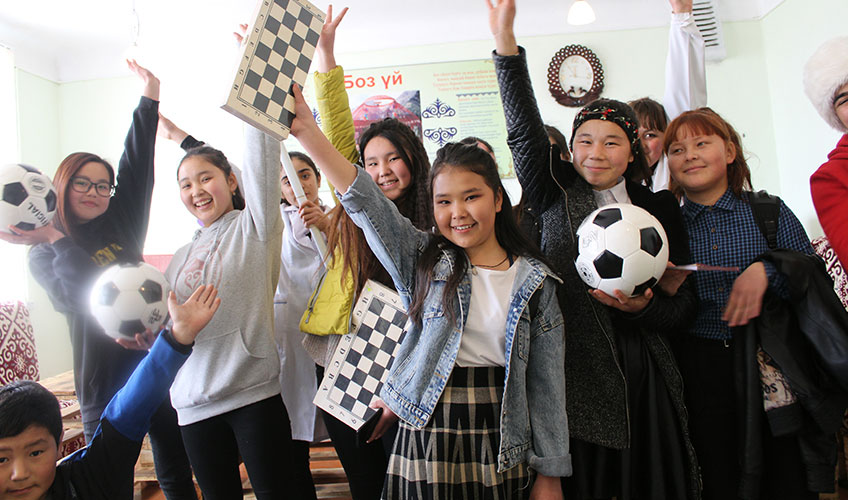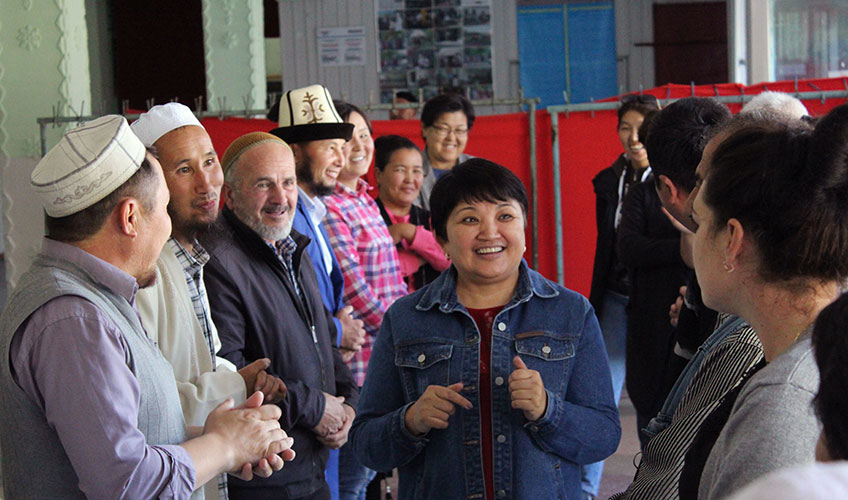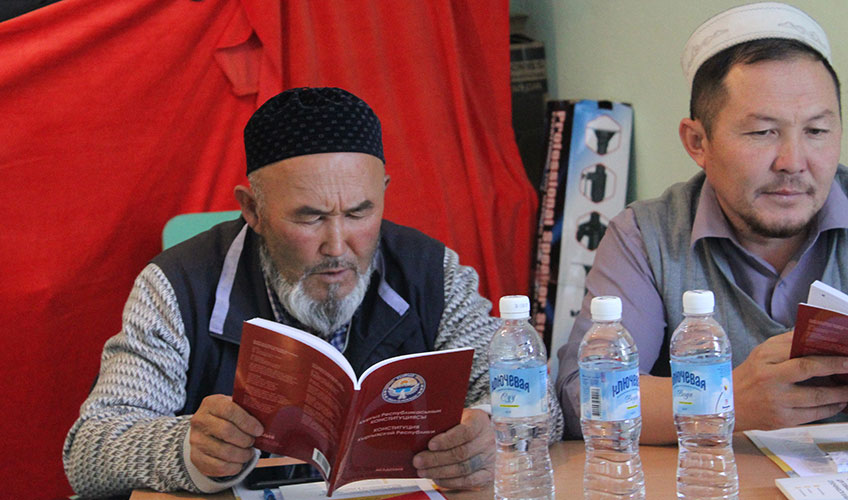Development Centre for children and adolescents in Yuryevka
Yuryevka aiyl aimak (municipal unit), Kyrgyzstan, is a transit point for immigrants and internal migrants, with a few local villagers still residing there. According to the results of a preliminary research by International Alert, while local people have higher tolerance and respect for other religions, migrants have a high level of religiosity.

In Yuryevka, interaction between local authorities and religious organisations is low and mainly through meetings and gatherings of villages. Migrants have more trust in religious and community leaders than in local governments in contrast to the local population, which has more trust in local self-government (LSG) bodies. In Yuryevka, there are several religious groups that do not cooperate with each other, which creates certain difficulties for LSG bodies as there is no common platform for educational work with youth and children, and activities to prevent violence, theft or other illegal actions. Lack of social cooperation creates the ground for conflicts, including criminal ones.
Within the framework of International Alert’s ‘Increasing tolerance in selected municipalities to promote social cohesion in Kyrgyzstan’ project, trainings on mediation, conflict sensitivity, social tolerance and legal aspects of relations between local governments, religious organisations and civil society were held for activists, representatives of local governments and religious leaders. The most active participants of the trainings formed an initiative group and produced the project ‘Reducing conflicts among adolescents,’ which is aimed at preventing and reducing potential for conflicts among adolescents and youth, as well as strengthening the social cohesion of the community of the Yuryevka aiyl aimak.

A woman from the Yuryevka village tells us:
I didn’t even know you could gather so many people at the same time in one place in our village. Even those, whom I rarely meet in the village, came, and there were not only religious people in the hall, but also almost all of our villagers with their children. I have never seen so many women at the meeting.
With the support of International Alert, the Development Centre for children and adolescents was opened at the House of Culture of the Yuryevka aiyl aimak. The Centre offers free courses on English, Korean and Arabic, as well as sports sessions on judo, wrestling, boxing, dance and chess. With the involvement of conflict psychologists, teachers, social pedagogues, local government representatives, religious leaders, and parents will also have the opportunity to improve their knowledge and skills in preventing and reducing conflicts among adolescents.
“It’s great we finally have a place where we can participate in extracurricular activities, develop, and learn languages. In our school, many children are considering going to the Development Centre as there is a large selection of free courses. We didn’t have the opportunity to do any hobbies before. We used to have a dance club, but after a couple of months the teacher stopped coming. Now, the Centre wants to offer more courses so that we can learn a profession,” a student of the Yuryevka school.
The leadership of the local government fully supported this initiative and provided space for the Centre in the local House of Culture. At the parent-teacher meeting, parents also asked to open seamstress courses, programming courses, and furniture-making courses. The first step was to make furniture. All of the Centre’s furniture is the work of the children themselves. Many of them have already begun to think about their future profession.

“I’ve been working at a school for 17 years, so I know the problem from inside. Conflicts happen constantly: when children are left without supervision after school they start conflicts, including inter-ethnic ones. During the project, we had the opportunity to propose the idea of opening a youth centre. At trainings, Alert taught us what conflicts are and how to solve them. The imams of our village, representatives of aiyl okmotu, were with us in the group. We all offered our views and ideas, and as a result we were able to open the youth centre.” Aziz Zarlykov, a social worker and head of the initiative group goes on to say:
We have various conflicts in life because of water, religion and the nation. Such problems are usually solved at the village gatherings but almost no one comes along to that, but a lot of people do gather for Friday prayer. After prayer, we can discuss the problems of our village, ways to solve them, and achieve reconciliation. We took the opportunity to invite imams and religious leaders to talk about the conflicts of our village and find peaceful solutions.
“This year is declared the year of digitalisation, and we want to conduct online courses on IT with the help of the IT Academy. The Chui regional library will also cooperate with us, and the sports federations of KR have promised to help us conduct tournaments and competitions. Soon we will also make our own greenhouse. Thanks to the Centre’s project, children will be able to learn new professions, and perhaps someone will be able to start a business,” member of the initiative group.
About the project
The project ‘Increasing tolerance in selected municipalities to promote social cohesion in Kyrgyzstan’ supported civic participation and peaceful dialogue between communities, religious groups and local authorities.
Focusing on six municipalities in Chui, Issyk-Kul, Naryn and Osh oblasts (regions), we ran focus groups, organised public debates and discussions on the role of religion in a secular state and provided training for religious leaders in mediation, conflict analysis and resolution, gender issues, and the social and legal role of religion and religious organisations in the country. We also piloted a scheme to give small grants to communities.
This project ran from March 2019 to March 2020, working with the following local partners: Development Policy Institute, Muftiyat, State Agency for Local Self-governance and Inter-ethnic Relations, Kyrgyzstan and State Agency for Religious Affairs, Kyrgyzstan.






